Webinar Series
The Enabling Environment for Animal-Source Food Market Systems — Lessons from the Field
Animal-source foods (ASF) hold tremendous potential for USAID programming to achieve economic growth, resilience, inclusiveness, and improved nutrition. Yet, for these investments to succeed, key factors within the enabling environment are required to support the unique characteristics of ASF systems.
Jointly presented by the Feed the Future Enabling Environment for Food Security (EEFS) project and the Feed the Future Innovation Lab for Livestock Systems, this three-part series explores three central categories within the enabling environment that impact ASF system success:
Each hour-long webinar recording features a discussion from EEFS on a recently published guidance document on the enabling environment for ASF, followed by speakers who share practical lessons from the field on how the enabling environment shaped particular ASF investments and project activities. Learning from this webinar series will benefit USAID, host country governments, and implementing partner decision-making for ASF system success.

|
Webinar 1: November 5, 2020
|
||
|
Activity |
Speaker |
Resources |
|
Opening remarks |
USAID Moderator |
|
|
Introduction to ASF topic |
Feed the Future Innovation Lab for Livestock Systems |
|
|
Why focus on the Enabling Environment for ASF specifically? |
Adam Keatts, Feed the Future Enabling Environment for Food Security Project |
|
|
Discussion of supply-side factors in the enabling environment for ASF system success |
Dr. Steve Staal, Feed the Future Enabling Environment for Food Security Project |
|
|
Discussion of feeds and forages (quality and availability): increased commercialization feed and forage in Niger through an innovation platform |
Dr. Vincent Bado, ICRISAT |
|
|
Discussion of animal health products and services: assessment of distance learning platform to make it easier for women to become village animal health workers in Nepal |
Dr. Conner Mullally, University of Florida |
|
|
Q&A |
USAID Moderator |
|
|
Concluding remarks |
USAID Moderator |
|

|
Webinar 2: November 12, 2020
|
||
|
Activity |
Speaker |
Links to Resources |
|
Opening remarks |
USAID Moderator |
|
|
Introduction to topic |
Feed the Future Innovation Lab for Livestock Systems |
|
|
The unique nature of the enabling environment for ASF markets |
Adam Keatts, Feed the Future Enabling Environment for Food Security Project |
|
|
Discussion of marketing factors in the enabling environment for ASF system success |
Dr. Steve Staal, Feed the Future Enabling Environment for Food Security Project |
|
|
Discussion of end-market demand: improving dairy product processing and Its effect on prices – evidence from Ethiopia |
Dr. Bart Minten, IFPRI |
|
|
Discussion of food safety control: improving food safety in markets in Cambodia |
Dr. Hung Nguyen, ILRI |
|
|
Q&A |
USAID Moderator |
|
|
Concluding remarks |
USAID Moderator |
|

|
Webinar 3: November 19, 2020
|
||
|
Activity |
Speaker |
Links to Resources |
|
Opening remarks |
USAID Moderator |
|
|
Introduction to topic |
Feed the Future Innovation Lab for Livestock Systems |
|
|
Discussion of financial services factors in the enabling environment for ASF system success |
Dr. Steve Staal, Feed the Future Enabling Environment for Food Security Project |
|
|
Discussion on formal credit for beef fattening in Eswatini |
Dr. Nadhem Mtimet, IFAD |
|
|
Discussion on informal credit for small ruminants in Nepal |
Dr. Sarah Janzen, Kansas State University |
|
|
Discussion of livestock insurance: index-based livestock insurance |
Dr. Nathaniel Jensen, ILRI |
|
|
Q&A |
USAID Moderator |
|
|
Concluding remarks |
USAID Moderator |
|
Speakers
(in order of appearance)
- Dr. Gbola Adesogan and Saskia Hendrickx (LSIL)
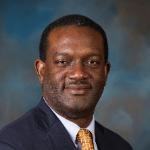
Dr. Adesogan is a Professor of Animal Nutrition and Director of the Feed the Future Innovation Lab for Livestock Systems at the University of Florida, which manages 45 research for development projects that use animal-source foods to improve nutrition, health and incomes in two South Asian and six sub-Saharan African countries. His research areas include using animal-source foods to improve human nutrition, health, incomes and livelihoods and evaluating strategies to sustainably improve animal production and health. He also directs the UF-IFAS Food Systems Institute.

Ms. Hendrickx is a veterinary epidemiologist and Deputy-Director of the Feed the Future Innovation Lab for Livestock Systems at the University of Florida, which manages 45 research for development projects that use animal-source foods to improve nutrition, health and incomes in two South Asian and six sub-Saharan African countries. Her research areas include improving surveillance of (zoonotic) livestock diseases and improving livestock production to increase household income.
- Adam Keatts and Dr. Steve Staal (EEFS)
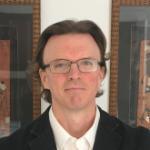
Mr. Keatts is an agricultural economist who has led a diverse range of research assignments, economic growth programs, and capacity building initiatives across more than 15 countries in Asia and Africa. Currently the Chief of Party for the Feed the Future Enabling Environment for Food Security Project, and Director of Food Analytics for Fintrac Inc., he designs, leads, and advises various analytical assignments in the field of global agricultural development. Mr. Keatts holds an MSc in Agricultural Economics and an MBA in Entrepreneurship and Finance.
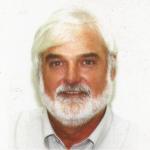
Dr. Staal is an agricultural economist who has conducted research in livestock systems in Sub-Saharan Africa, South Asia and Southeast Asia for some 30 years. His areas of work have included: livelihoods and competitiveness of smallholder livestock producers and small scale actors in livestock product markets; the role of non-market benefits of livestock keeping; understanding technology uptake among rural producers and the associated spatial and locational determinants; pro-poor public policy in output markets serving livestock producers; and informal and traditional livestock products markets. He is retired from the International Livestock Research Institute (ILRI) in Kenya. The research and programs that he led were often very closely tied to major development initiatives in partnership with local and international NGOs and national governments.
- Dr. Vincent Bado (International Crops Research Institute for the Semi-Arid Tropics, ICRISAT)
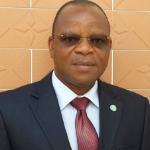
Dr. Bado is a Cropping System Agronomist with specialization in Soil Science and Environment by training. After his agronomy diplomas from the Universities of Abidjan (Côte d’Ivoire) and Ouagadougou (Burkina Faso), he obtained his MSc and PhD at the University of Laval (Canada). He accumulated 28 years working in research-for-development and scientific leadership on farming systems in Africa. He has worked as a soil scientist and fertility agronomist, rice-based system agronomist, and Natural Resource Management and cropping system agronomist. He is working at the International Crops Research Institute for the Semi-Arid Tropics (ICRISAT) as Principal Scientist on Dryland Systems and Livelihood Diversification. He has extensive experience of collaborating with scientists from national institutions in Africa, CGIAR systems, and many international institutions. He published or co-published more than 100 journal articles, book chapters, conference papers, and manuals for extension or the laboratory.
- Dr. Conner Mullally (University of Florida)
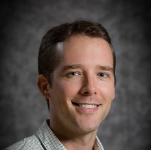
Dr. Mullally is an Assistant Professor in the Food and Resource Economics Department at the University of Florida. His research focuses on program evaluation and various aspects of smallholder agriculture in developing countries, including risk management and the impacts of production technologies. He earned his PhD in Agricultural and Resource Economics from the University of California, Davis in 2011.
- Dr. Bart Minten (International Food Policy Research Institute, IFPRI)
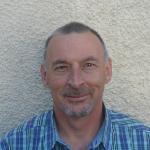
Dr. Minten, a Belgian citizen, joined the International Food Policy Research Institute (IFPRI) as a senior research fellow in December 2006. Since September 2020, he works for IFPRI from Yangon, Myanmar, as a program leader of the Myanmar Agricultural Policy Support Activity, focusing on research, capacity building, and outreach and communication of research related to food and agricultural issues. He worked in Addis Ababa, Ethiopia from 2011-2020 as the program leader of the Ethiopia Strategy Support Program, and in the New Delhi Office from 2006-2011, focusing on the effects of changes in agricultural value chains on the structure of food systems in South Asia. Prior to joining IFPRI, he was a senior research associate for the Cornell Food and Nutrition Policy Program in Madagascar. He also held the position of assistant professor in the Department of Agricultural and Environmental Economics, KU Leuven, as well as teaching positions at Cornell University and the University of Antananarivo, Madagascar. He received his PhD in Agricultural and Resource Economics from Cornell University, USA, and his bio-engineering degree from the KU Leuven, Belgium.
- Dr. Hung Nguyen (International Livestock Research Institute, ILRI)
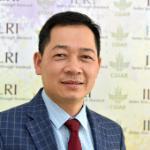
Dr. Hung Nguyen is the co-leader of Animal and Human Health Program since May 2020 and was the regional representative for East and Southeast Asia from 2015 to 2019 at the International Livestock Research Institute (ILRI). His research focuses on the link between health and agriculture, food safety, and infectious and zoonotic diseases with an emphasis on the use of risk assessment for food safety management with an integrative approach (Ecohealth and One Health). He is the flagship leader of food safety of the CGIAR research program on Agriculture for Nutrition and Health (A4NH). Previously, he was a jointly appointed scientist with ILRI and Swiss Tropical and Public Health Institute (Swiss TPH). He co-founded and led the Center for Public Health and Ecosystem Research at Hanoi University of Public Health, Vietnam from 2009 to 2013. He worked in Switzerland from 2007 to 2012 as a postdoctoral researcher in Microbiology, Health, and Environment. His work experience in developing countries includes Southeast Asia (Vietnam, Cambodia, Thailand, Laos) and West Africa (Côte d’Ivoire). He holds a BSc in Biology (Vietnam) and a PhD in Life and Environmental Sciences (France).
- Dr. Nadhem Mtimet (International Fund for Agricultural Development, IFAD)
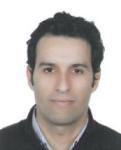
Dr. Mtimet has recently joined the International Fund for Agricultural Development (IFAD) as Senior Technical Regional specialist: Rural Finance, Markets and Value Chains based in Cairo. Before joining IFAD, he spent over 8 years as Senior Agricultural Economist at the International Livestock Research Institute (ILRI) in Nairobi. Nadhem has over 15 years of increasingly complex work responsibilities in research and development in the areas of agribusiness, value chains, livestock finance, consumer behavior and food safety. Nadhem holds an MSc degree in Agri-food Marketing from the Agronomic Mediterranean Institute of Zaragoza, Spain, and an MSc degree and PhD degree in Applied Economics from the University of Zaragoza.
- Dr. Sarah Janzen (University of Illinois)
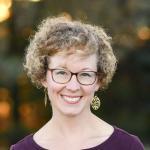
Dr. Janzen is Assistant Professor of Agricultural and Consumer Economics at the University of Illinois Urbana Champaign. Janzen’s research focuses on global poverty and international agricultural development. Her research spans three areas: theoretical modeling of poverty and asset dynamics, risk and agricultural finance in developing countries, and impact evaluation of anti-poverty programs. She has ongoing research projects in both Kenya and Nepal. Janzen earned a PhD in Agricultural and Resource Economics from the University of California, Davis in 2013.
- Dr. Nathaniel Jensen (International Livestock Research Institute, ILRI)
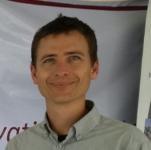
Dr. Jensen is a scientist for the Sustainable Livestock Systems program at the International Livestock Research Institute (ILRI) in Nairobi, Kenya. His research on poverty reduction focuses on resilience, social protection, financial tools, and innovative approaches to data collection. Before joining ILRI in 2016, he was a Peace Corps Volunteer in Mali from 2005 to 2007. He then worked with agro-pastoralists in Bolivia while pursuing a Masters in Agriculture and Applied Economics from the University of Missouri-Columbia, USA. Then he moved to Cornell University as an IGERT fellow in Food Systems and Poverty Reduction and completed his PhD in Applied Economics and Management in 2014.
Feed the Future Innovation Lab for Livestock Systems is part of Feed the Future





